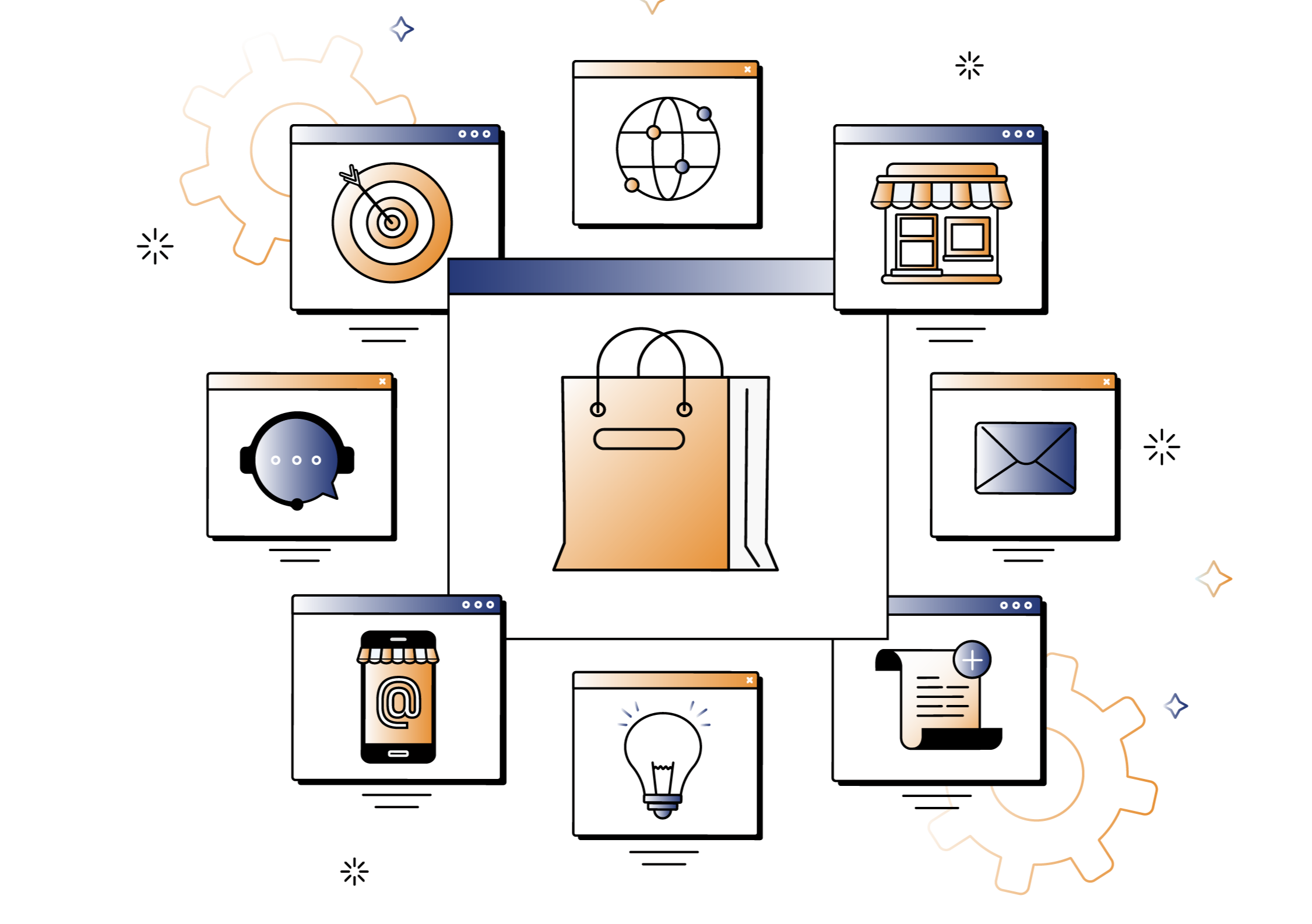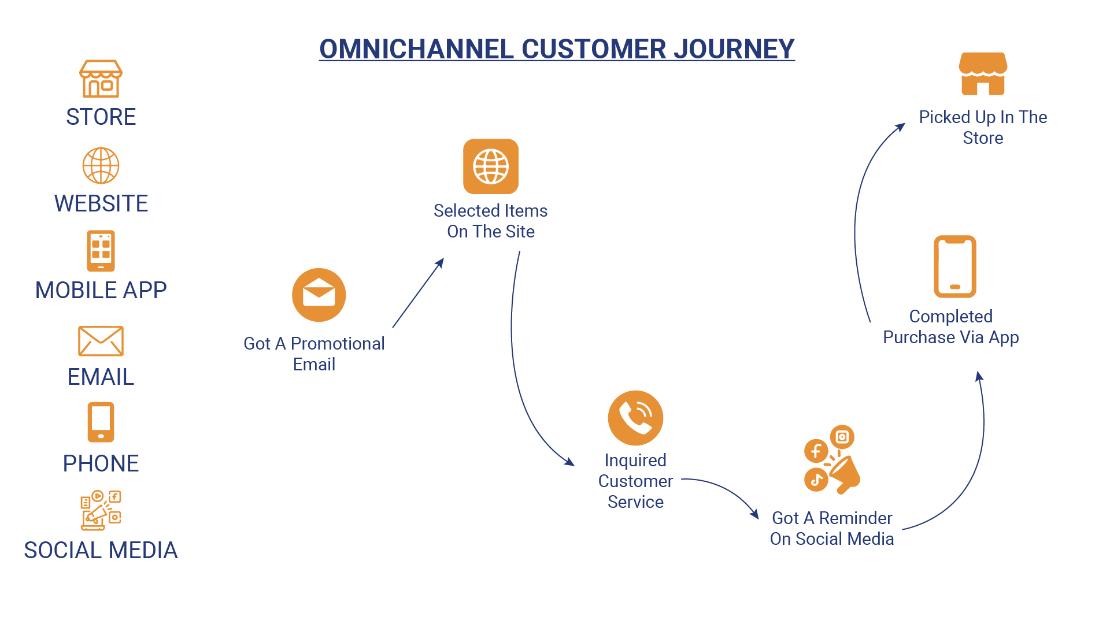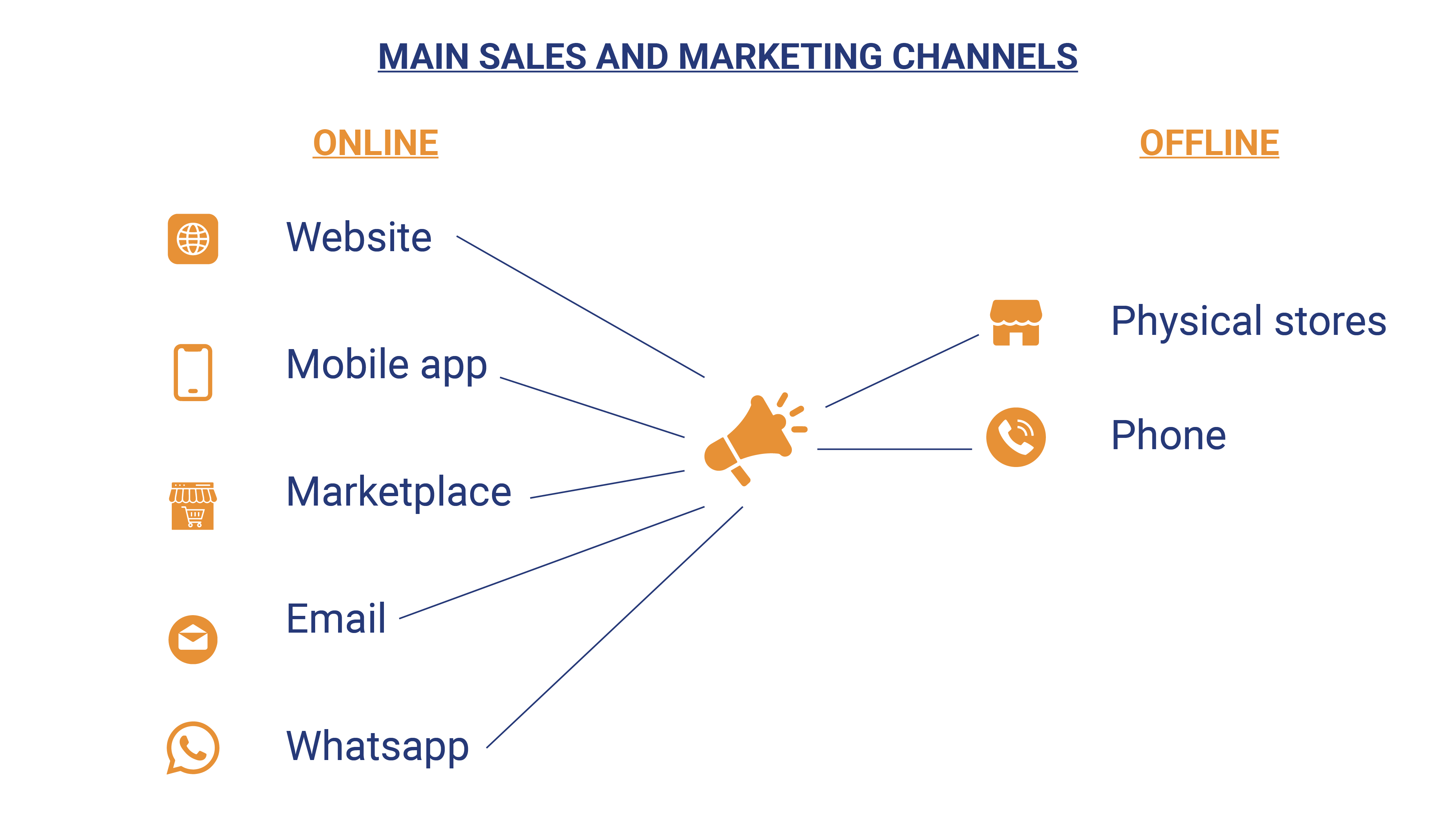Omnichannel Integration
Seamlessly integrate multiple system functions and formats across offline and online channels
FOYCOM Omnichannel Integration
There is no universal formula for implementing an omnichannel strategy, as it can vary widely based on the specific needs of a business. However, some fundamental principles are crucial for all implementations. First, businesses must have a deep understanding of their customers' needs and behaviors. This insight is key to creating a cohesive and personalized experience across all channels. Additionally, the right technology infrastructure is essential to support and track data across multiple channels, ensuring a seamless experience. Second, successful omnichannel strategies require sufficient resources and a dedicated team to manage and coordinate efforts across various platforms.

Key Solution Capabilities of Omnichannel Integration
Product Information Management
This solution offers a centralized view of all your products across all channels.
Enterprise Inventory Management
The application provides a central view of your stock levels across stores and all distribution centers, giving all sales channels access to the sale up-to-date inventory information.
Fulfillment Management
Gain transparency and control over the entire fulfillment process from the warehouse to customer deliver.
Order Management System (OMS)
A centralized platform for processing, tracking, and managing orders across all sales channels, ensuring a seamless customer experience and efficient order fulfillment.
Omnichannel Pricing and Promotions
Synchronizes pricing, discounts, and promotional offers across all sales channels, ensuring consistent and accurate pricing for customers regardless of their shopping platform.
Digital Asset Management (DAM)
Manages and distributes digital assets such as images, videos, and marketing materials across all channels, ensuring consistent branding and up-to-date product information.
Stages Of The Omnichannel Integration Customer Journey
Onboarding
Engagement
Conversion

Omnichannel Integration Strategy
Customer Experience
Seamlessly integrate all channels to provide a consistent and satisfying customer journey.
Marketing
Leverage data from multiple touchpoints to create cohesive and targeted marketing campaigns.
Customer Service
Ensure quick and efficient support across all channels to enhance customer satisfaction.
Personalization
Utilize customer data to deliver personalized experiences across various channels, improving engagement and loyalty.

Benefits Of Omnichannel Personalization
Increase revenue by 20% to 25%
Influence 93% of shopper to complete a purchase
1:1 relationship with customers
Outsell other companies by
25% to 30%
FAQs Related To FOYCOM Omnichannel Integration
Omnichannel integration is crucial because it enhances the customer experience by providing consistent brand interactions across all channels. This consistency leads to increased customer satisfaction, loyalty, and retention. Moreover, it allows businesses to gain deeper insights into customer behavior and preferences, facilitating more personalized marketing and service.
While both strategies involve multiple channels, omnichannel focuses on creating a cohesive and unified customer experience across these channels. In contrast, multichannel simply involves having a presence on multiple channels without necessarily integrating them into a seamless experience.
Essential technologies for omnichannel integration include Customer Relationship Management (CRM) systems, Enterprise Resource Planning (ERP) systems, Point of Sale (POS) systems, eCommerce platforms, data analytics tools, and marketing automation platforms. These technologies enable efficient data management and customer interaction across all touchpoints.
Data silos can be overcome by implementing centralized data management systems and ensuring that all channels feed into a single source of truth. Utilizing data integration and synchronization tools can help maintain consistency and accuracy across different systems, enhancing overall efficiency.
Omnichannel integration offers a seamless transition between different channels, allowing customers to interact with a brand through their preferred method without losing context or continuity. This integration enables businesses to provide personalized experiences and targeted marketing, thanks to the comprehensive customer data collected.
Customer feedback is vital for identifying gaps and areas for improvement. It provides businesses with insights into customer preferences and pain points, helping them refine their omnichannel strategy to deliver better service and meet customer expectations more effectively.
The success of an omnichannel strategy can be measured using various metrics, such as customer satisfaction scores, Net Promoter Score (NPS), conversion rates, average order value, customer retention rates, and operational efficiency. These metrics provide a comprehensive view of the strategy's effectiveness and areas for further improvement.